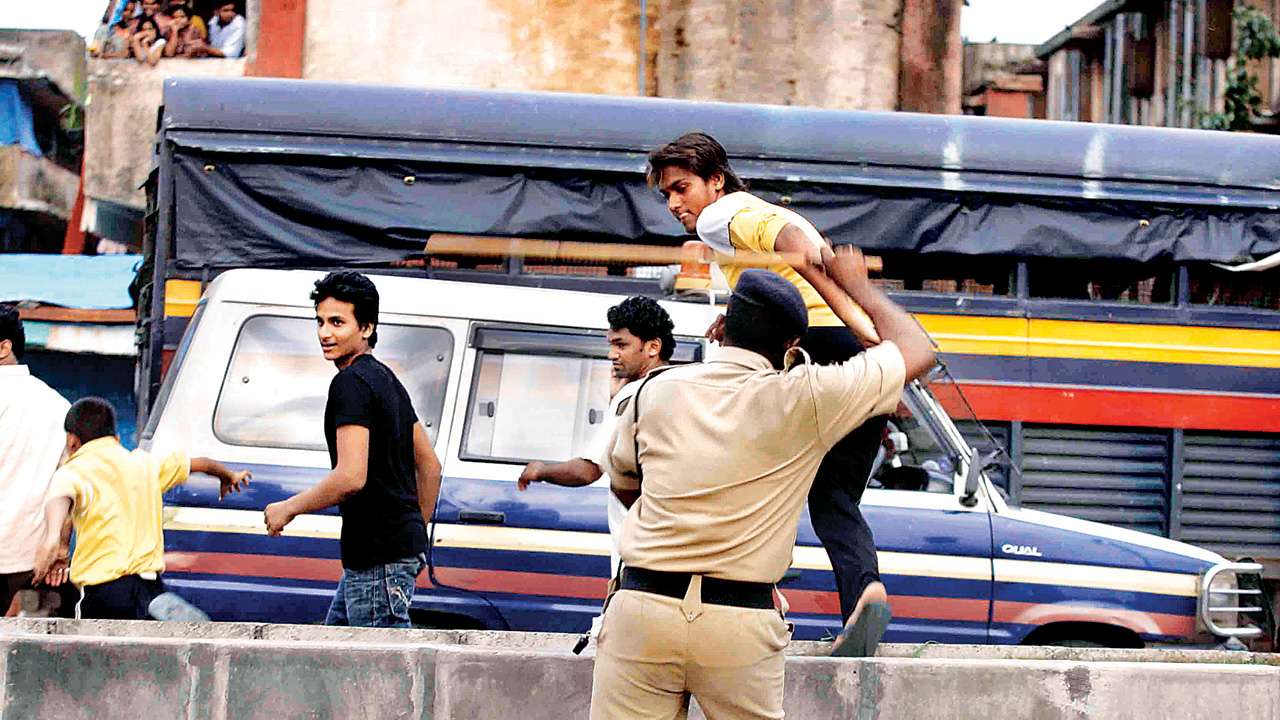
The Muzzaffarnagar communal violence of 2013 was the result of failure of the state police and the state government, says the Supreme Court. The origin of these communal clashes were attributed to a case of eve-teasing and a minor traffic accident. Though trivial, these events led to the death of 62 persons, injured hundreds while thousands others were displaced from their homes.
The Supreme Court took a larger view of the clashes, but there is much more underneath, a volcano of simmering tensions, which had long gripped the two communities.
It goes back to the police station and its beat officers who are supposed to be the eyes and ears of the people. The policemen on the street have lost touch with the public. However small a force in a police station, they have lost their connections with the heart and minds of the people.
The role of the constable, the foot soldier of the police force, the man who merges and mingles with crowd, has ever been ignored. The undercurrents may not be visible to governments, but is most visible to one who is ubiquitous and whose footprints are everywhere, the beat constable.
The ikbal (power) of the state reaches the masses through the unarmed frontman of the police station. The incharge just does not, any longer, care about the reportings by policemen. The frontman is not just ignored by the police station incharge but even by the superiors who count them as one of the numbers.
The number that a constable carries on his belt is the only connection he has with the police department or the state. He is the faceless lathi-wielding robot, part of a huge police posse deployed during agitations, fashion shows, cricket matches and VIP security duties.
He is one in the huge number, meant to overawe crowds and to use brute force to restore normalcy in riot-affected areas. What could have easily been prevented by this minimum denominator of the police force, is done by the armed police and armed battalions, who can never substitute for an ordinary constable.
This is the legacy of a colonial past when the power of the police station was restricted to the officer incharge of the police station, easy for the colonialists to control and manipulate.
The men who formed the police force were illiterate, their only motivation being the salary they earned at the end of the month. The same situation exists today, despite rising educational standards and aspirations of policemen.
Other than executing summons and warrants of the courts, he has little role in the police station. The guard duty, patrolling in the streets and working as assistants of investigating officers, are functions that do not utilise his energy and potential.
By virtue of the Police Act and Criminal Procedure Code, he is a police officer. In reality, he is a misnomer for a man who does all the menial work for the state and enjoys no power of the law.
Their number is huge. According to a 2017 report by Home Ministry’s Bureau of Police Research and Development (BPRD), the number of police stations in the country is 15,579 and the number of police outposts is pegged at 9,087, which are manned by a civil police force of approximately 20 lakh. Of these, about 5.50 lakh are head constables and roughly 15.50 lakh are constables. These two classes constitute 80% of the force and are the front-line foot soldiers of the police.
These are the people who mainly perform the functions of the police and are visible to the public. Each policeman caters to a population of 518, which may not equal European standards, yet is not insignificant.
To support these police officers are 4,75,189 state armed police personnel and 470 state armed battalions, who are faceless and appear on the scene when the law and order situation deteriorates.
State governments spend huge money on the police department. According to BPRD, the total police expenditure for 2016-2017 was pegged at approximately Rs 90,000 crore. Much of what is spent on police force goes waste. It is not that police do not need money, but better management of money would bring better results.
The colonial attitude demoralises and demotivates the constabulary. ‘I don’t have stars over my shoulder, what will you take away from me,’ is the retort of a constable to his superintendent. He knows the closest promotion as head constable cannot come before 10-15 years, and if he is lucky enough then a star on his shoulder may come at the end of his service. What stake or ownership does he have in the police department? He finds his comfort in the bribe money that he gets as share of the police station loot. Consequences are gross indiscipline, groups within the police stations for lucre and conspiracies against each other.
The best motivation is to dangle a star over the shoulder of a constable in the early years of his career. The motivation of promotion, powers of investigation, recognition, respect from the state and department will release huge energy hitherto unused and closeted within the hearts and minds of the finest young men of India, who constitute the bulk of the police force.
Amid big talk of police reforms across the political spectrum, this could be the smallest reform possible that can transform the police into a vibrant living institution of modern India.
The author is a retired IPS officer from Rajasthan